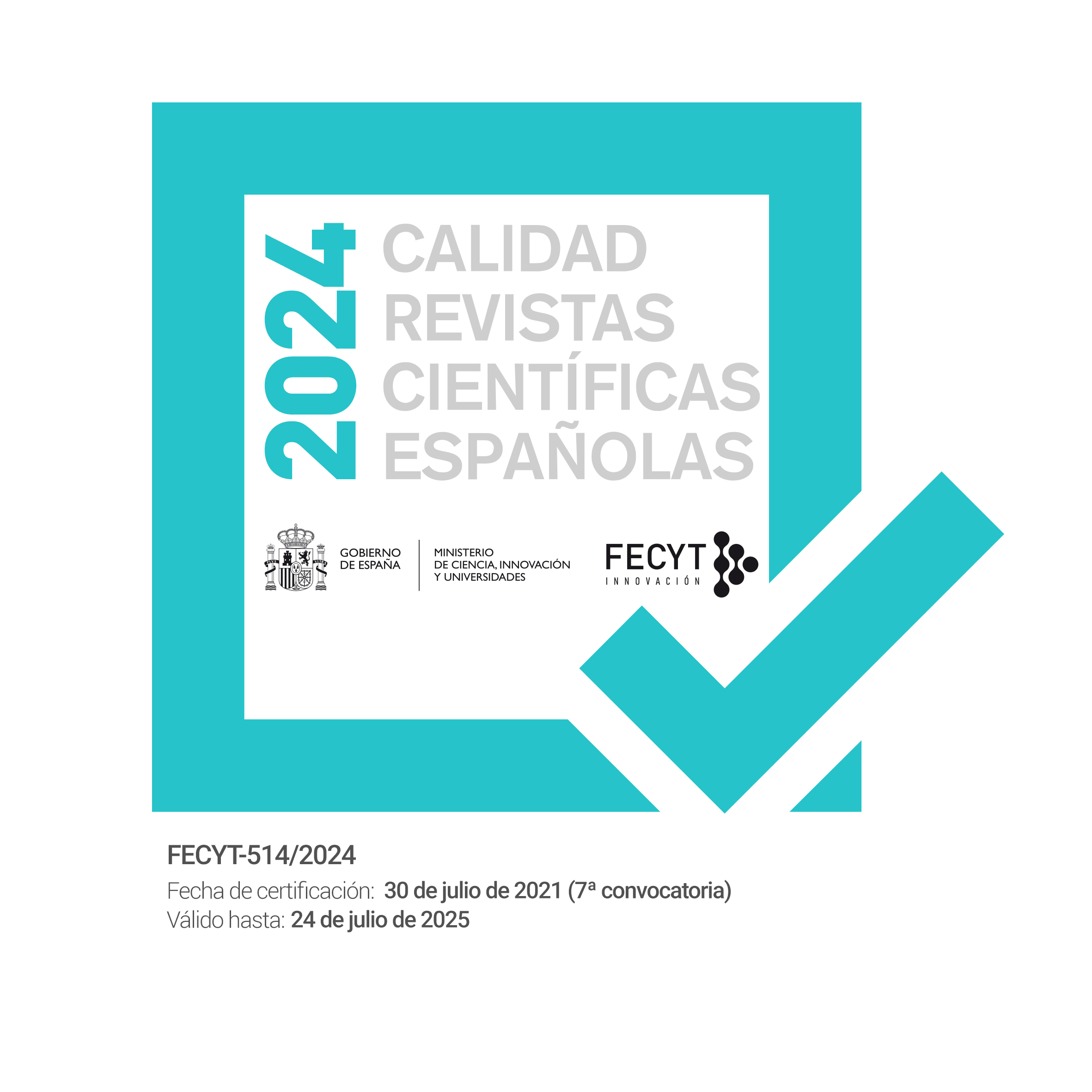THE SCHEME OF POTIPHAR’S WIFE: FROM CLASSICAL TRADITION TO EUGENE O’NEILL
Keywords:
Literary Topos; Eugene O’Neill; Classical Tradition; Joseph and Potiphar’s Wife; Desire Under the Elms.Abstract
The aim of the present paper is to introduce a literary topos called the scheme of Potiphar’s wife, its development in literary history and its recreation in Eugene O’Neill’s Desire Under the Elms (1924). Taking into consideration the three factors established by Laguna Mariscal for a literary topos (content, literary form, and historical development), the evolution of this topos in The Egyptian Tale of Two Brothers, the biblical Book of Genesis, Homer’s Iliad, Ovid’s Metamorphoses, Euripides’s Hippolytus, Seneca’s Phaedra and O’Neill’s Desire Under the Elms is surveyed. It is argued that the story of Potiphar’s wife is part of a long-standing topos that has been developed through the literary history. The recreation of this topos in O’Neill’s play, as one permutation of this topos, while evoking several Classical sources, especially the Hippolytus by Euripides, is at the same time a creative adaptation, aimed to match the historical context of twentieth century America.
Downloads
References
ABRAMS, M. H., and Geoffrey Galt Harpham. A Glossary of Literary Terms. 9th ed., Wadsworth Cengage Learning, 2009.
AGUIAR E SILVA, Vitor Manuel de. Teoría de la literatura. Gredos, 1972.
ALEXANDER, Doris. Eugene O'Neill's Creative Struggle: The Decisive Decade, 1924-1933. The Pennsylvania State University Press, 1992.
---. “Mourning Becomes Electra.” Bloom’s Modern Critical Views: Eugene O’Neill, edited by Harold Bloom, Bloom’s Literary Criticism, 2007, pp. 31-58.
APAIBANDIKUL, Kaeokallaya. The Influence of Greek Tragedy on Eugene O’Neill’s Work. 1989. Chulalongkorn University, MA thesis.
BERLIN, Normand. The Secret Cause: A Discussion of Tragedy. University of Massachusetts Press, 1981.
BIERLEIN, J. F. Parallel Myths. Ballantine Wellspring, 1994.
BLACK, Stephen A. “‘Celebrant of loss’ Eugene O'Neill 1888-1953.” The Cambridge Companion to Eugene O’Neill, edited by Michael Manheim, Cambridge University Press, 1998, pp. 4-17.
---. Eugene O'Neill: Beyond Mourning and Tragedy. Yale University Press, 2002.
---. “‘Mourning Becomes Electra’ as a Greek Tragedy.” The Eugene O'Neill Review, Vol. 26, 2004, pp. 166-188. Jstor, https://www.jstor.org/stable/29784745.
BLOOM, Steven F. Student Companion to Eugene O'Neill. Greenwood Press, 2007.
BROMILEY, Geoffrey William. The International Standard Bible Encyclopedia. Vol. 2, Wm. B. Eerdmans Publishing Co., 1982.
BURIAN, Peter. “Tragedy Adapted for Stages and Screens: the Renaissance to the Present.” The Cambridge Companion to Greek Tragedy, edited by P. E. Easterling, Cambridge University Press, 1997, pp. 228-283.
CARPENTER, Charles A. “Scholarship on Eugene O'Neill: A Comparative Statistical Study.” The Eugene O'Neill Review, Vol. 31, 2009, pp. 79-86. Jstor, https://www.jstor.org/stable/29784873.
CHIRICO, Miriam M. “Moving Fate into the Family: Tragedy Redefined in O'Neill's ‘Mourning Becomes Electra.’” The Eugene O'Neill Review, Vol. 24, No. 1, 2000, pp. 81-100. Jstor, https://www.jstor.org/stable/29784685.
CRISTÓBAL LÓPEZ, Vicente. “Edad de oro, lugar ameno y vida feliz en Fedra, 483-564.” Cuadernos de Filología Clásica, No. 16, 1979, pp. 155-176.
CURTIUS, Ernest Robert. European Literature and the Latin Middle Ages. Translated by Willard R. Trask, Princeton University Press, 1983.
ESCOBAR CHICO, Ángel. “Hacia una definición lingüística del tópico literario.” Myrtia, No. 15, 2000, pp. 123-160.
EISEN, Kurt. “Eugene O'Neill's Joseph: A Touch of the Dreamer.” Comparative Drama, Vol. 23, No. 4, 1989-90, pp. 344-358. Jstor, https://www.jstor.org/stable/41153427.
EURIPIDES. “Hippolytus.” Ion, Hippolytus, Medea, Alcestis, Translated by Arthus S. Way, William Heinemann Ltd, 1958, pp. 157-278.
“Genesis”. The New International Version (NIV), Biblica. https://www.biblica.com/bible/niv/. Accessed 26 March 2020.
GOLDMAN, Shalom. The Wiles of Women/The Wiles of Men: Joseph and Potiphar's Wife in Ancient Near Eastern, Jewish, and Islamic Folklore. State University of New York Press, 1995.
GOMEZ LUQUE, Juan Antonio. El tópico literario de la Travesía de amor: de la literatura clásica a la poesía española de los Siglos de Oro. 2018. Universidad de Córdoba, PhD dissertation.
GREENE, Thomas M. The Light in Troy: Imitation and Discovery in Renaissance Poetry. Yale University Press, 1982.
GRIMAL, Pierre. The Concise Dictionary of Classical Mythology. Basil Blackwell, 1990.
HAMILTON, Edith. Mythology. Back Bay Books, 1942.
HARDWICK, Lorna, and Christopher Stray. A Companion to Classical Receptions. Wiley-Blackwell, 2011.
HERMANN-MILLER, Eileen. “Staging O'Neill: Staging Greek Tragedy.” The Eugene O'Neill Review, Vol. 25, No. 1, 2001, pp. 70-75. Jstor, https://www.jstor.org/stable/29784711.
“Hippolytus.” Encyclopedia of Greco-Roman Mythology, ABC-CLIO, 1998, p. 165.
HOLLIS, Susan Tower. “The Woman in Ancient Examples of the Potiphar’s Wife Motif, K2111.” Gender and Difference in Ancient Israel, edited by Peggy Lynne Day, Fortress Press, 2006, pp. 28-42.
HOMER. The Iliad. Translated by A.T. Murray, Harvard University Press, 1924. Perseus Collection, http://www.perseus.tufts.edu/hopper/text?doc=Perseus%3Atext%3A1999.01.0134%3Abook%3D6%3Acard%3D156.
JEFFREY, David Lyle. A Dictionary of Biblical Tradition in English Literature. Wm. B. Eerdmans Publishing Co., 1992.
KNOX, Bernard M. W. “The Hippolytus of Euripides.” Oxford Readings in Greek Tragedy, edited by Erich Segal, Oxford UP, 1983.
LAGUNA MARISCAL, Gabriel. “En tierra, en humo, en polvo, en sombra, en nada»: historia de un tópico literario.” Anuario de Estudios Filológicos, No. 22, 1999, pp. 197-213.
---. “Eres mi padre y mi madre: tradición literaria de un tópico amatorio atribuido a Jesús en el Evangelio.” Liber amicorum en honor del Profesor Jesús Peláez del Rosal, edited by Lautaro Roig Lanzillota and Israel Muñoz Gallarte, Cordoba: Ediciones El Almendro, 2013, pp. 207-217.
---. “La capa de Jose.” Tradición Clásica, 28 June 2005, http://tradicionclasica.blogspot.com/2005/06/la-capa-de-jos.html .
---. “Regalos para enamorar (munera amoris): un tópico literario de ayer y de hoy.” Amor y sexo en Roma: su reflejo en la literatura, edited by Rosario Moreno Soldevila and Juan Martos, Universidad de Huelva, 2014, pp. 25-56.
LATTIMORE, Richmond. “Phaedra and Hippolytus.” Arion: A Journal of Humanities and the Classics, Vol. 1, No. 3, 1962, pp. 5-18. Jstor, https://www.jstor.org/stable/20162789.
LEFTERATOU, Anna. Mythological Narratives: The Bold and Faithful Heroines of the Greek Novel. De Gruyter, 2018.
LEEMAN, A. D. “The lonely vigil. A topos in ancient literature.” Actus: Studies in honour of H. L. W. Nelson, edited by J. den Boeft and A. H. M. Kessels, Instituut voor Klassieke Talen, 1982, pp. 189-201.
MARTINDALE, Charles, and Richard F. Thomas. Classics and the Uses of Reception. Blackwell Publishing, 2006.
MILNER, Larry S. Was Achilles a Jew?: Hebraic Contributions to Greek Civilization. Xlibris Corporation, 2008.
MOST, Glenn W., and Gian Biagio Conte. “Topos.” The Oxford Classical Dictionary, 4th ed., Oxford UP, 2012.
NAREY, Wayne. “Eugene O'Neill's Attic Spirit: ‘Desire Under the Elms’.” The Eugene O'Neill Review, Vol. 16, No. 1, 1992, pp. 49-54. Jstor, https://www.jstor.org/stable/29784436.
NUGENT, S. Georgia. “Masking Becomes Electra: O'Neill, Freud, and the Feminine.” Comparative Drama, Vol. 22, No. 1, 1988, pp. 37-55. Jstor, https://www.jstor.org/stable/41153316.
O’NEILL, Eugene. “Desire Under the Elms.” Complete Plays: 1920-1931, The Library of America, 1988, pp. 317-378.
OVID. Heroides and Amores. Translated by Grant Showerman, William Heinemann, 1914.
---. Metamorphoses. Translated by Brookes More, Cornhill Publishing Co, 1922.
PARKS, Edd Winfield. “Eugene O'Neill's Quest.” The Tulane Drama Review, Vol. 4, No. 3, 1960, pp. 99-107. Jstor, https://www.jstor.org/stable/1124849.
PERRINE, Laurence. Literature: Structure, Sound, and Sense. 5th edition, Harcourt Brace Jovanovich, 1988.
PETERSON, William M. “A Portrait of O'Neill's Electra.” The Eugene O'Neill Review, Vol. 17, No. 1, 1993, pp. 66-75. Jstor, https://www.jstor.org/stable/29784487.
SINHA, Chandreshwar Prasad. Eugene O'Neill's tragic vision. New Statesman, 1983.
REDFORD, Donald B. A Study of the Biblical Story of Joseph: (Genesis 37-50). E. J. Brill, 1970.
ROBINSON, James A. “The middle plays.” The Cambridge Companion to Eugene O’Neill, edited by Michael Manheim, Cambridge University Press, 1998, pp. 69-81.
SCHOLZ, Bernhard F. “Comparing Poetry and Music – Beethoven’s Goethe Lieder.” Sensus Communis: Contemporary Trends in Comparative Literature, edited by Hernry Remak, Gunter Narr Verlag, 1986, pp. 155-166.
SEDERBERG, Arelo. Murder Most Foul: Violence in the Classics. Writers Club Press, 2001.
SENECA. “Phaedra.” Hercules. Trojan Women. Phoenician Women. Medea. Phaedra, edited and Translated by John G. Fitch, Harvard University Press, 2002, pp. 437-551.
SHAFER, Ivonne. Eugene O'Neill and American Society. University of Valencia, 2011.
SIMPSON, William Kelly. The Literature of Ancient Egypt: An Anthology of Stories, Instructions, Stelae, Autobiographies, and Poetry. 3rd ed., Yale University Press, 2003.
SMITH, Steven D. Greek Epigram and Byzantine Culture: Gender, Desire, and Denial in the Age of Justinian. Cambridge UP, 2019.
“Theseus and the Heroes of Attica.” New Larousse Encyclopedia of Mythology, Crown Publishers, 1987.
THOMPSON, Stith. Motif-Index of Folk-Literature. Indiana University Press, 1989.
THORBURN, John E. The Facts on File Companion to Classical Drama. Facts On File, Inc., 2005.
TORNQVIST, Egil. “O'Neill's philosophical and literary paragons.” The Cambridge Companion to Eugene O’Neill, edited by Michael Manheim, Cambridge University Press, 1998, pp. 18-32.
UZUNEFE YAZGAN, Yasemin. Vestiges of Tragedy in Three Modern Plays. 2003. Middle East Technical University, MA Thesis.
WATSON, Patricia A. Ancient Stepmothers: Myth, Misogyny and Reality. E. J. Brill, 1995.
YOHANNAN, John D. Joseph and Potiphar's Wife in World Literature: An Anthology of the Story of the Chaste Youth and the Lustful Stepmother. New Directions Publishing Corporation, 1968.
ZYL SMITH, Betine van. The Handbook to the Reception of Greek Drama. Wiley Blackwell, 2016.















